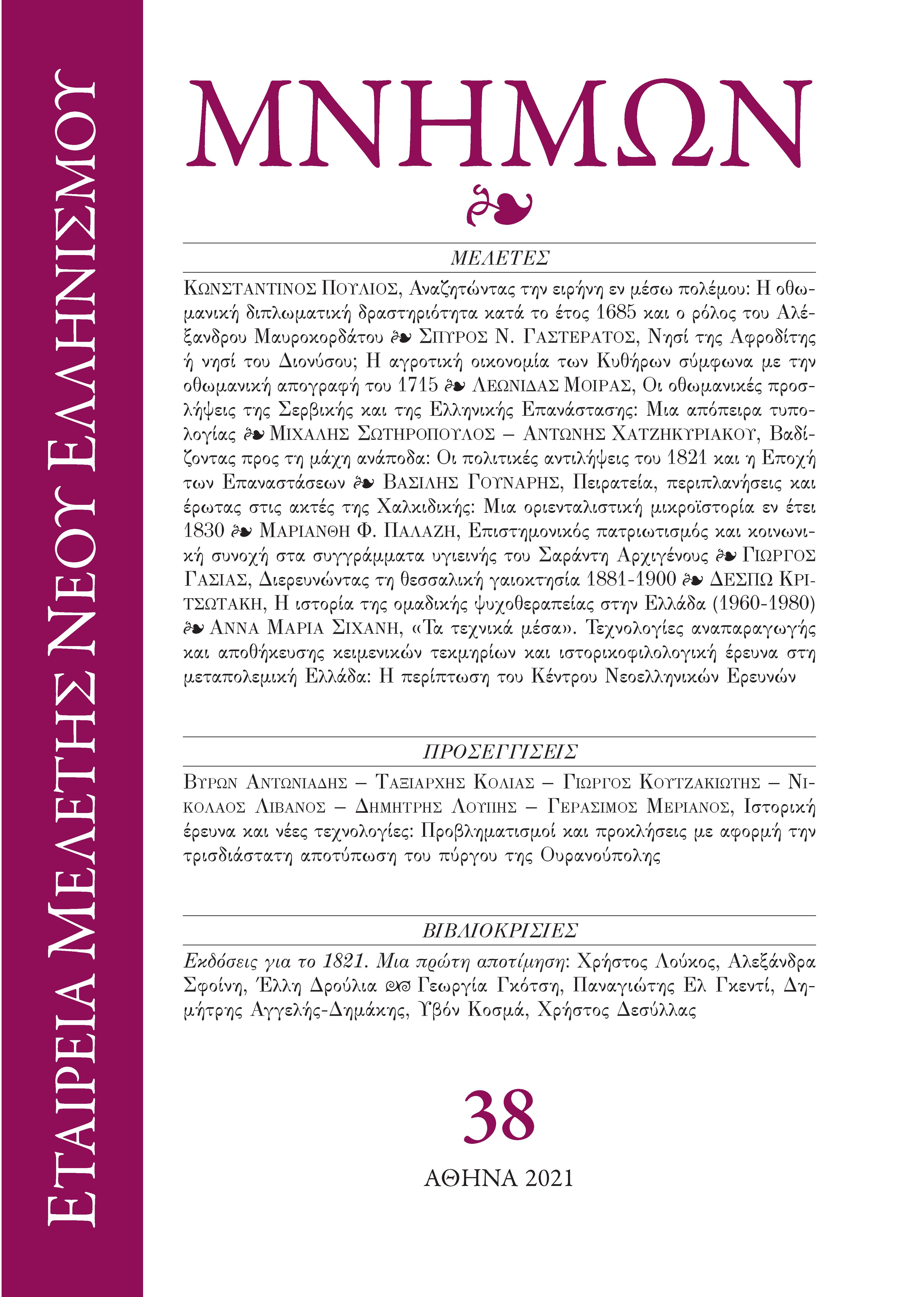ΕΠΙΣΤΗΜΟΝΙΚΟΣ ΠΑΤΡΙΩΤΙΣΜΟΣ ΚΑΙ ΚΟΙΝΩΝΙΚΗ ΣΥΝΟΧΗ ΣΤΑ ΣΥΓΓΡΑΜΜΑΤΑ ΥΓΙΕΙΝΗΣ ΤΟΥ ΣΑΡΑΝΤΗ ΑΡΧΙΓΕΝΟΥΣ

Περίληψη
Δεν διατίθεται περίληψη στα ελληνικά.
Λεπτομέρειες άρθρου
- Πώς να δημιουργήσετε Αναφορές
-
ΠΑΛΑΖΗ Μ. Φ. (2024). ΕΠΙΣΤΗΜΟΝΙΚΟΣ ΠΑΤΡΙΩΤΙΣΜΟΣ ΚΑΙ ΚΟΙΝΩΝΙΚΗ ΣΥΝΟΧΗ ΣΤΑ ΣΥΓΓΡΑΜΜΑΤΑ ΥΓΙΕΙΝΗΣ ΤΟΥ ΣΑΡΑΝΤΗ ΑΡΧΙΓΕΝΟΥΣ. Μνήμων, 38(38), 133–155. https://doi.org/10.12681/mnimon.38228
- Τεύχος
- Τόμ. 38 (2021): Μνήμων
- Ενότητα
- ΜΕΛΕΤΕΣ

Αυτή η εργασία είναι αδειοδοτημένη υπό το CC Αναφορά Δημιουργού – Μη Εμπορική Χρήση – Παρόμοια Διανομή 4.0.
Οι συγγραφείς των άρθρων που δημοσιεύονται στο Μνήμονα διατηρούν τα δικαιώματα πνευματικής ιδιοκτησίας επί των άρθρων τους, δίνοντας στο περιοδικό το δικαίωμα της πρώτης δημοσίευσης. Άρθρα που δημοσιεύονται στο Μνήμονα μπορούν να χρησιμοποιούνται ελεύθερα, χωρίς δικαίωμα τροποποίησης (δημιουργία παράγωγου έργου) με αναφορά στο συγγραφέα και στην πρώτη δημοσίευση για μη κερδοσκοπικούς σκοπούς(άδεια Creative Commons 4.0). To Εθνικό Ίδρυμα Ερευνών διατηρεί το δικαίωμα να δημοσιεύει, να αναπαραγάγει, να παρουσιάζει στο κοινό, να διανέμει και χρησιμοποιεί άρθρα που δημοσιεύονται στο Μνήμονα σε οποιοδήποτε μέσο και μορφή είτε μεμονωμένα είτε ως μέρη συλλογικών έργων, για όλο το χρόνο διάρκειας προστασίας της πνευματικής ιδιοκτησίας και για όλες τις χώρες του κόσμου. Αυτό περιλαμβάνει ενδεικτικά και όχι αποκλειστικά, το δικαίωμα δημοσίευσης των άρθρων σε τεύχη του περιοδικού Μνήμων, αναπαραγωγής και διανομής μεμονωμένων αντιγράφων των άρθρων, αναπαραγωγής ολόκληρων των άρθρων σε άλλη έκδοση του ΕΙΕ, και αναπαραγωγής και διανομής των άρθρων ή περίληψης αυτών με χρήση πληροφορικού συστήματος αποθετηρίου.


